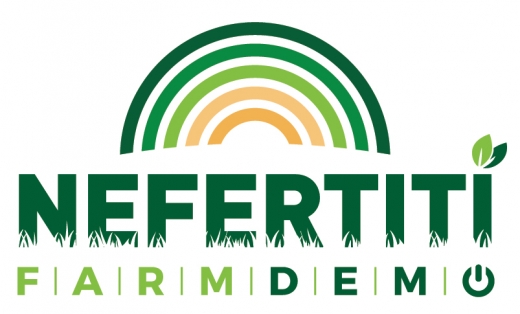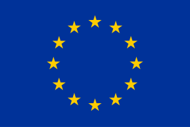On virtual demo events, learning by doing and more – NEFERTITI annual meeting – 13-14 April 2021, online
The fourth NEFERTITI Annual Meeting was all about collective reflection: from demonstration and facilitation to network sustainability, communication, dissemination and outreach, with plenty of opportunities to discuss and exchange in small groups.
As IFOAM Organics Europe we are Deputy Leader of Networks 3 (organic animal husbandry) and 6 (organic arable cropping) and participated in the two-day online event and Network 6/arable sector break-out sessions moderated by Network Leader Mateusz Sękowski, Head of the Department of Systems and Technology in Agriculture, Agricultural Advisory Center in Brwinów Branch Office in Radom, Poland.

Virtual demo events: lessons learned
Despite the COVID-19 crisis, the NEFERTITI projects reached the number of events per network. Most innovations presented and demonstrated during demo events came from research & innovation (40%), the farmers directly (35%), and the supply chain companies (25%). The highest ranked goal was innovation uptake.
Lessons from virtual demos include:
- The quality of virtual demos can still be high;
- Virtual settings may even make demos more accessible to some, attracting people who are far away and lifting boundaries;
- Technicalities and knowledge exchange may pose hurdles but trial and error and good preparation can overcome these;
- To manage diverse networks, it is important to make a plan and follow up on it;
- It is crucial to ensure everybody is on board by identifying common interests, meaningful content, creating an atmosphere of trust, openness and fun, good facilitation, and in-between informal exchange (using sticky notes, MentiMeter feedback etc. can be ways to include all participants);
- Virtual demos can include pre-recorded videos, live interaction (in studio), facilitated virtual exchange, virtual presentations, live connection to the field, experts’ experiences, virtual Q&A etc.
Learning by doing: Setting up virtual demos
After selecting a topic (scientific/technical/agronomic content), the objective of the live/virtual demo should be clarified (e.g. inspiring, enabling implementation or collecting feedback to improve an innovation) before designing the set up and optimising peer-to-peer learning. Organisers can encourage reflection through objective, reflective, interactive and decision questions. If the content is attractive and farmers are able to practice and provide feedback, 90% of participants will remember a virtual demo.
While the development of the national situation for face-to-face meetings in countries participating to NEFERTIT is still uncertain, the networks hope to be able to organise physical demo events in 2021 or 2022. Participants also stressed that it is essential to continue regular meetings and exchange within the project’s networks, sharing information, progress and best practices. Especially for farmers themselves, cross-visits (for Network 6 potentially in Finland) are considered indispensable to learn by doing.
Network sustainability
Key elements to making a hub/network sustainable:
- Financing, such as connecting with EU projects, rural development programmes, new EU instruments to support innovation such as EIP-AGRI, etc;
- Institutional ownership and the functional model (governance, partnerships, demo events…); and
- Policy interaction.
Member States assign different value to demo farms in their AKIS systems. The entire structure should be able to sustain also Thematic Networks. Liaising with other Horizon 2020 project, such as I2Connect, was a suggestion from participants.
To make practical knowledge available and easily accessible in a centralised place to the farming community in the long term, IFOAM Organics Europe is also involved in the Horizon 2020 projects EURAKNOS and EUREKA, with EUREKA going beyond Thematic Networks to include all EU multi-actor projects. Similarly, the online platform Organic Farm Knowledge was set up to make practical knowledge generated by EU projects and tools for organic farming available.

Communication, dissemination and outreach
In terms of communication, participants identified the leaflet describing the hub campaign as well as a series of short videos with farmers’ testimonies as most effective and attractive. The videos should be promoted on social media and link to the website. For dissemination of the training kit, agricultural schools might be a good channel. Through the exercises during the annual meeting, the networks could directly apply presented input.
What’s next for the NEFERTITI project?
The meeting ended with an outlook on the next steps: The project is expected to be extended by 6-9 months. Each hub will organize at least one virtual demonstration, making use of facilitation skills and all NEFERTITI tools. The platform will be improved, and the final conference (FarmDemo Conference 2.0) will be held together with the new project IPMWORKS as well as potentially new Horizon Europe projects as there will be a new, follow-up project on farm demos.
Check out the NEFERTITI project website for more information about the project and networks, results and resources, news, videos, newsletters and, of course, a link to the FarmDemo platform.
For more information about IFOAM Organics Europe and its members’ involvement, please contact [email protected].
The NEFERTITI project an EU-wide connected network of demonstration and pilot farms to enhance knowledge exchange and innovation uptake. It established 10 interactive thematic networks, connected 45 regional clusters of demo-farmers and related actors in 17 countries. IFOAM Organics Europe is a partner in the project.



